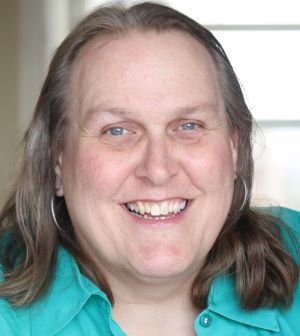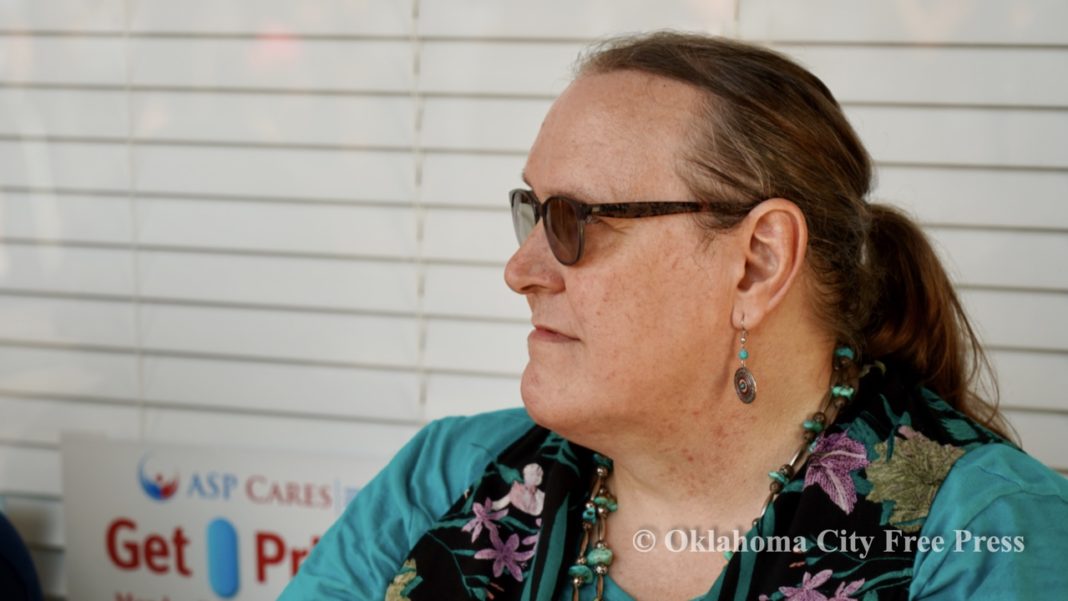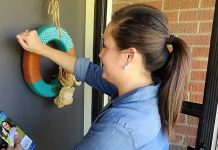Last Updated on January 5, 2024, 12:56 AM | Published: October 8, 2021
Paula Sophia Schonauer, LCSW, continues a serial memoir. If you haven’t read the earlier parts of this series, follow the links at the bottom of this page.
“A human being without the proper empathy or feeling is the same as an android built so as to lack it, either by design or mistake. We mean, basically, someone who does not care about the fate which his fellow living creatures fall victim to; he stands detached, a spectator, acting out by his indifference John Donne’s theorem that ‘No man is an island,’ but giving that theorem a twist: that which is a mental and a moral island is not a man.”
― Philip K. Dick, The Dark-Haired Girl
Before Robocop, there was Future Cop, a made-for-television movie that aired in 1976 and a short-run television series airing in 1977. Dad and I happened to catch an episode one evening during another lay-off from his job at Terex, then owned by General Motors.
The premise of the show involved an android that appeared to be human and programmed to be the perfect partner for a human cop played by Ernest Borgnine. As with many shows that portrayed human-like androids, the android, played by Michael Shannon, had trouble comprehending human emotions, especially when emotions prompted behavior that seemed illogical according to computerized analysis. This touch-point was a big source of conflict and comedy in the show.
At one point, the android is shot in the line of duty and rushed to a special repair facility where Ernest Borgnine has an emotional response. The android tells his partner, “Why are you upset, I can’t die?” (Or something like that).
Dad chimed in with a comment, almost an unconscious admission, one of the few times I glimpsed his soul. “I wish I was an android,” he said.
It seemed funny to me, at first, but then it made sense.
Dad presented a pragmatic approach to life, and it was difficult for him to comprehend other people’s emotions and desires. It seemed like he thought of other people as pawns for manipulation, tools for his use. We were there to satiate his desires, whatever they were. Either we amused him, or we frustrated him, especially when we did not interact with him as he desired, when we disagreed, or when we developed different goals than what he had planned for us.
Obviously, Dad was not an android. In addition to the blood and flesh comprising his body, he was highly emotional, mostly angry, and he expressed his anger in destructive ways: breaking things in the house, physical and mental abuse of my mother, suicidal behavior.

I believe his desire to be an android was an awareness of his humanity, perhaps an expression of shame. It seemed he did not want to have emotions, not even love and connection, joy and celebration, peace and contentment. He wanted the ability to think with a clear, precise, and objective mind unclouded by emotions, unmarred by desire, and, perhaps, immortal through maintenance and upgrades like the machines he serviced at the factory where he worked. He even said as much in the conversation ensuing after the Future Cop episode had ended.
I must admit, though, my recall of this event has layers of nuance added over many years of trying to understand Dad, who he was, and who he became.
Having reached a point in life when I can reflect on Dad without a sense of longing accompanied by denial, I can see several habits and attributes that make me wonder about Dad’s reliance upon stimulants. Dad drank a lot of coffee, day and night, but this would not explain his appearance.
He was gaunt with visibly decaying teeth before the age of 30, a profound lack of hygiene (sometimes sent home from work because coworkers complained about his body odor), and a tendency to sleep whole days and weekends (a behavior consistent with methamphetamine users who reach a crashing point).
Dad worked nights at Terex and General Motors for decades, complaining often about the lack of a “humane schedule” but never changing shifts. I have wondered if his complaints were performative to mask his reliance upon nighttime hours and the access to stimulants workers sold to each other.
I recall a friend he once had, a guy named Dave Lawton who bragged about being an outlaw biker belonging to the Breed, a prominent one-percenter motorcycle club in Ohio during the 1970s. Dave often had bags of Black Beauties and Bennies in his possession, and the Breed had been well known for trafficking amphetamines.
Dad’s most alarming behaviors involved his addiction to sex. A constant consumer of pornography, Dad had stacks of Hustler magazines at home, boxes of homemade 8mm movies, and an interest in younger women and girls. He engaged in grooming behavior, but I did not recognize it for what it was when I witnessed it. He showered girls and young women with special attention, especially if they came from troubled families.
I recall my aunt (Mom’s sister) complaining about advances he made toward her when she was only fifteen or sixteen, and I am aware of others. He tended to blame Mom for being “frigid” and “brainless,” too “dumb” to enjoy sex. I heard these insults hurled at Mom many times during Dad’s rages.
Though Dad had a desire to program himself, he often expressed a desire to program his kids. He used a behaviorist approach to mold us into the people he wanted us to be, mostly with me, as he endeavored to eradicate my queerness, wanting me to live the life he had wanted to live – an engineer with a mathematical mind, confident with women, a master of my domain. All these attributes seem reasonable, but Dad’s narrow ideals were difficult for me to negotiate and, ultimately, impossible to fulfill because I was not the person he wanted me to be in so many ways, not the least of which being my gender identity.
At this writing, I still mourn the family we could have been had Dad been less selfish, more loving, more aware of other people’s needs. He traumatized all of us with his behavior, his moods, and his destructiveness, and all of us suffered abuse of one kind or another.
I used to pretend I was a changeling, that I had actually belonged to another family, that I had been assigned the wrong sex at birth, and, had I been in my “real family” growing up, I would have been raised as a girl, growing to womanhood happy and well adjusted, smart, accomplished, and beautiful.
However, I do know who my real family is, and for the benefit of us all, I wish Dad’s wish to be an android had come true.
Previous posts
Here are previous segments:
- Manhood, from the inside out — Memoir and Mythology
- Part 2 — Cubby Hole
- Part 3 — Magic Carpet Cocoons
- Part 4 — Snips and Snails and Puppy-Dogs’ Tails
- Part 5 — Mirror
- Part 6 – Deep Water
- Part 7 – Limbo
- Part 8 – Dissociation
- Part 9 – Shame
- Part 10 – Judgement Day
- Part 11 – Inferno
- Part 12 – Haunted
- Part 13 – Did I say that?
- Part 14 – The end times
- Part 15 – Alone again (naturally)
- Part 16 – Welcome to Grey Town
- Part 17 — Stigma
- Part 18 — Turning the other cheek
- Part 19 — Malingering
- Part 20 — Rorschach
- Part 21 – Soft hands
- Part 22 — How real men talk
- Part 23 — Crash landing
- Part 24 — To make a fist
- Part 25 — To hurt another
- Part 26 — Showdown
- Part 27 — Savage aggression
- Part 28 – Heroic
- Part 29 — Fear of death
Guest Columnist Paula Sophia is a licensed clinical social worker in Oklahoma City and a former Oklahoma City Police Officer.







